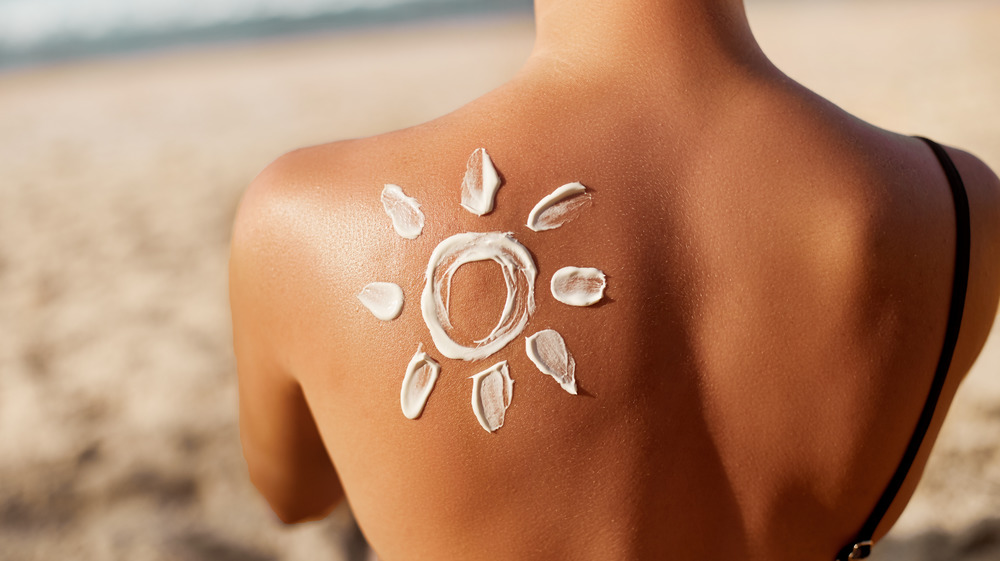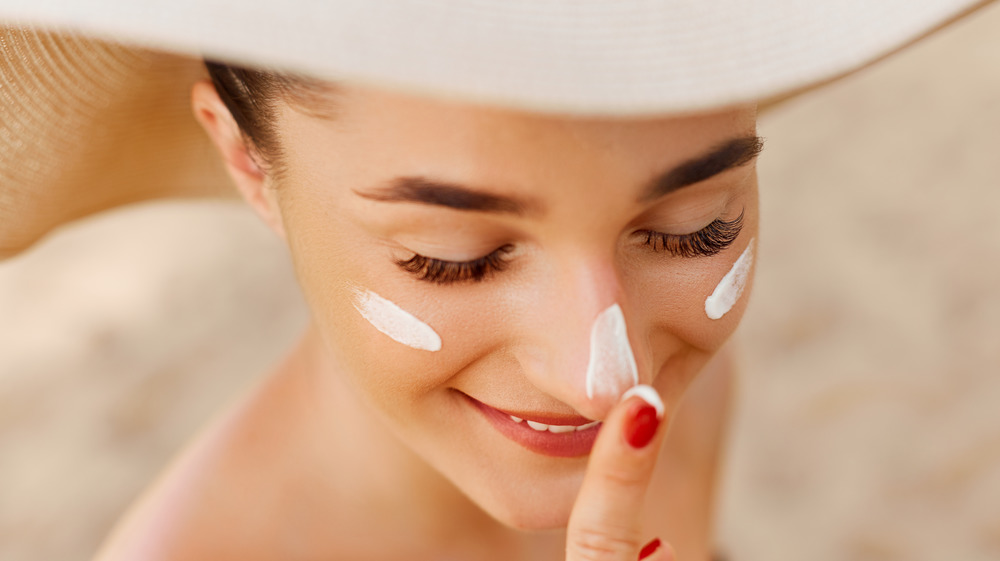Sunscreen And Sunblock Don't Mean The Same Thing. Here's Why
The words sunscreen and sunblock are often used interchangeably, but they're actually two very different products. While sunscreen coats you with chemical barriers that protect you from sun damage by absorbing ultraviolet rays, sunblock uses physical blockers to do the same by reflecting the sun's rays (via Harvard Health Publishing).
Sunscreens contain oxybenzone, aminobenzoic acid, avobenzone, octisalate, or octocrylene, and can be found in spray or lotion forms. While some chemicals protect against radiation from UVA rays from the sun, they need to be combined with other compounds in order to provide protection from UVB rays (via Harvard Health Publishing).
A sunblock will use zinc oxide or titanium dioxide to reflect UV rays. Often, you can tell if someone is wearing sunblock rather than sunscreen because it appears more chalky — think lifeguards with the strip of white across their noses — but it's considered to be the more long-lasting, protective option. People with sensitive skin may opt for a sunblock over a sunscreen, as it can be less irritating (via the Mayo Clinic). Sunblocks are also protective from both UVA and UVB rays, making them naturally broad-spectrum sun protection.
Which sun protection should you use?
When choosing a sunscreen or a sunblock, check the sun protection factor (SPF) and look for one that's SPF 30 or higher and water-resistant, even if you're not going in the pool. For sunscreen, make sure it's broad-spectrum. Sunblock with zinc oxide or titanium dioxide will naturally be broad spectrum (via the American Academy of Dermatology).
Remember to apply sunscreen to all the nooks and crannies that might be exposed to the sun: "Common places people miss are going to be the ears, your eyelids, your lips, your scalp, the top of your feet or places near the edges of clothing, such as straps," dermatologist Jennifer Lucas, MD, tells the Cleveland Clinic. Reapply every two hours, and don't forget: Cloudy days and even winter days can still leave you sunburned, so make sure you're covered anytime you're outside for an extended period.
While wearing sunscreen or sunblock is a great start, remember to be aware of how long you're in the sun (and reapply as needed). You also may want to consider wearing UV-blocking clothing and a hat to avoid long exposures, like if you're spending the day at the beach.


